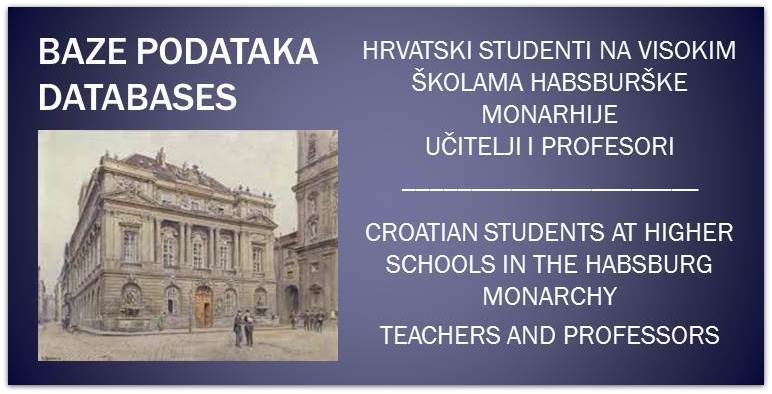Vlasta Švoger, Dinko Župan and Mislav Gregl at 38th Historical Association of Slovenia Assembly
38th Historical Association of Slovenia Assembly was held in Ravne na Koroškem, 28-30 September 2016. The subject of the Assembly was “History of Education“. The Assembly was organized by the Historical Association of Slovenia HAS and Carinthian Historical Society.
Team members dr. Vlasta Švoger, dr. Dinko Župan and Mislav Gregl presented their current researches on the occasion:
Dr. Vlasta Švoger, On the Role of Informal Education in 19th Century Croatia (panel: Views on teaching history in schools)
In 19th century Croatia, informal forms of education were very important due to the unsatisfactory formal education system, which was characterised by an underdeveloped network of schools and their small numbers, especially schools for girls; the poor quality of education and underpaid teachers; too large class sizes; irregular school attendance by pupils; impossibility for higher education in Croatia until the foundation of the University of Zagreb in 1874, except in legal sciences and theology; as well as other problems. The role of informal forms of education in Croatia in the 19th century will be illustrated by the example of a number of distinguished Croatian intellectuals. On the basis of autobiography sources – autobiographies and diaries – I will demonstrate what the role of selfeducation, education with private tutors and governesses was in education and intellectual formation of distinguished teacher and educator Mijat Stojanović, publicist Imbro Ignjatijević Tkalac, politician and publicist Andrija Torkvat Brlić, writer Ksaver Šandor Gjalski and two Croatian female writers, Dragojla Jarnević and Ivana Brlić-Mažuranić. In their autobiographic and diary entries, they critically evaluated the positive and negative aspects of their own formal and informal education.
Dr. Dinko Župan, A Comparative Approach to Education of Women in France, England and Austrohungarian Monarchy in the Second Half of the 19th Century (panel: Women education and teachers emotions)
I will try to present the comparative approach to women’s education in France, England and AustroHungarian Monarchy in the second half of the 19th century. The main goals in schools’ politics of women’s education in France, England and Austro-Hungarian Monarchy is similar to construction of ideal image of womanhood. School’s politics of women’s education in the second half of the 19th century was primarily based on constructing desirable gender and class identities. According to the opinions of the then educational authorities and psychologists, the aim of the school system was to turn the female students into good mothers, wives and housewives. “The real woman” was the one who completely fulfilled her duties as a mother, wife and housewife, she is the one who was modest, obedient, diligent, lovely, religious, silent, shy and patient. This “natural” characteristics of femininity was presented in the pedagogical discourse in France, England and Austro-Hungarian Monarchy. During the 19th century the education system was built on the idea that Foucault calls “the regime of truth”. The knowledge and power were mutually connected and the education system used it to influence the cultural construction of female identities.
Mislav Gregl, Students from Duchy of Krain at Regia Scientiarum Academia in Zagreb in Early 19th Century (panel: Students in Zagreb, Gorizia and Rijeka)
The secondary and high education in Zagreb in early 19th century was organized within academy with gymnasium (Regia Scientiarum Academia cum Archigymnasio). The two-year study of philosophy served as obligatory preparation for studies of theology and law. Most students of philosophy were therefore at the age between 16 and 20. Zagreb was at the time relatively significant educational centre, although of limited (regional) scope, so there had been students who stemmed from the Duchy of Krain. By analyzing the school directories and other sources, we shall try to assess their conditions of living in Zagreb, grounds for decision to study in Zagreb, their wishes about their future professions and how all these issues had been influenced by the general political situation in the turbulent era of Napoleonic wars, when the Duchy of Krain temporarily became, as well as some Croatian lands, part of the Illyrian Provinces of French Empire.
The Assembly is organized by the Historical Association of Slovenia HAS and Carinthian Historical Society.
Full Programme available here.











